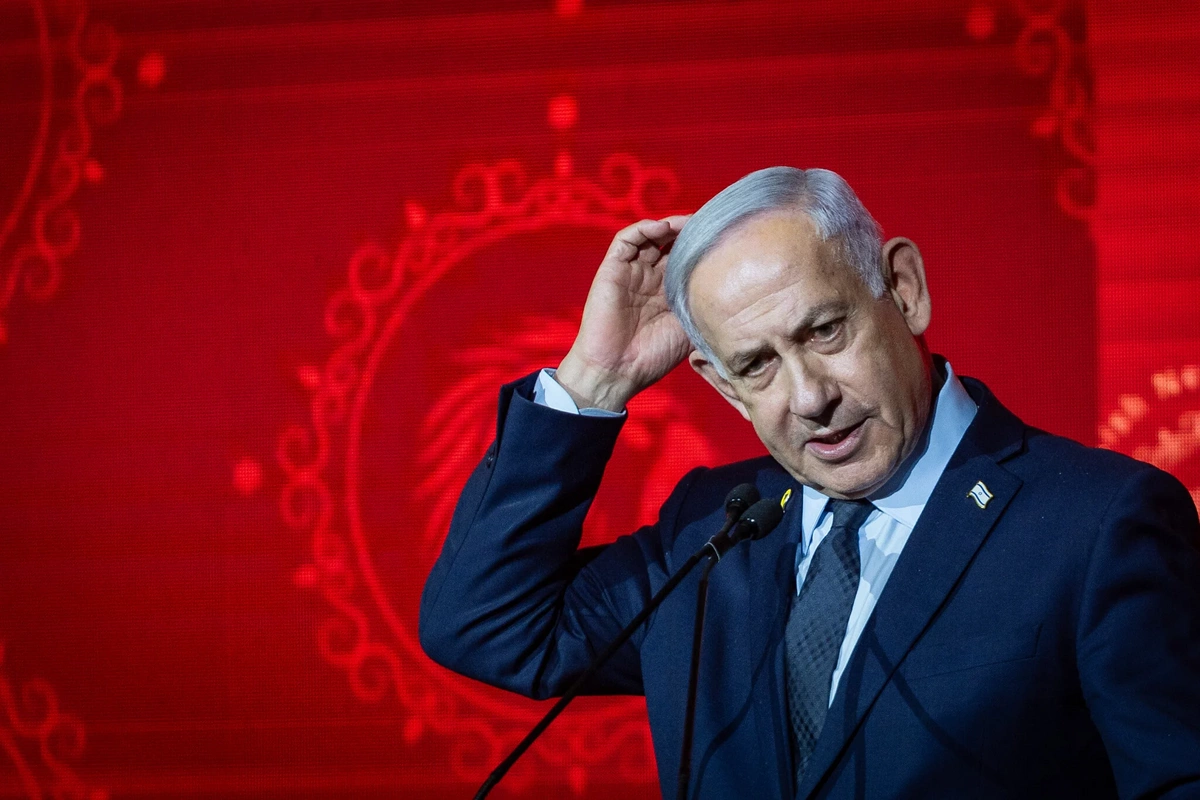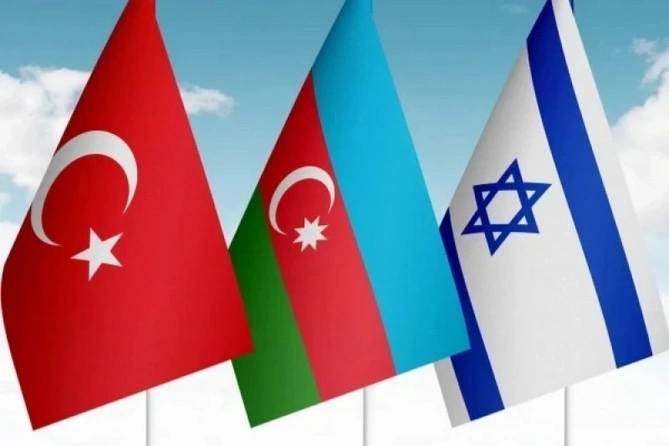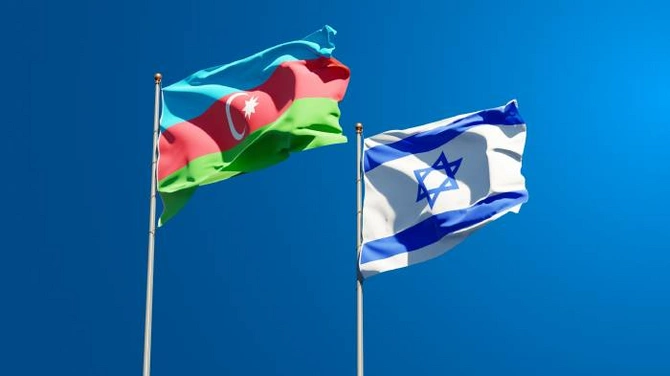
Photo credit: Yonatan Sindel/Flash90
Israeli Prime Minister Benjamin Netanyahu is set to visit Azerbaijan next week, with the exact dates now officially confirmed. While earlier reports had only mentioned May 8, The Times of Israel, citing the Prime Minister’s Office, revealed on Tuesday that the visit would be unprecedented in its duration.
According to the report, Netanyahu will arrive in Baku on May 7. On May 8, he is scheduled to meet with Azerbaijani President Ilham Aliyev and representatives of the Jewish community. He is expected to return to Israel on May 11.
The publication highlights that Azerbaijan is not a member of the International Criminal Court (ICC) in The Hague, and therefore there is no risk of Netanyahu being arrested. It is worth recalling that the ICC has issued a warrant for the Israeli Prime Minister’s arrest. Nonetheless, even if Azerbaijan were a member of the ICC, Netanyahu would likely feel entirely secure in Baku. The relationship between the two nations is too close and strategically significant to be undermined by the shifting winds of international politics.
Notably, Turkish President Recep Tayyip Erdoğan is also expected to visit Baku in May. Against the backdrop of Azerbaijan’s recent mediation efforts to ease tensions between Ankara and Tel Aviv, many experts speculate that the two leaders might meet during this period. While the exact date of Erdoğan’s visit has not yet been announced, such speculation is bolstered by Türkiye's recent decision to permit Netanyahu’s plane to transit through Turkish airspace-a significant gesture in itself.

Photo: Shutterstock
It is worth recalling that Netanyahu had previously been unable to attend COP29 in Baku because Türkiye denied overflight rights. The fact that Ankara has now opened its skies to Netanyahu-even amid strained bilateral ties-speaks volumes.
This leads to one key question: What will Netanyahu be doing during his five-day stay in Baku, and why is the visit so unusually long?
While speculation may be premature, one can reasonably assume that the agenda will include more than just bilateral issues. One major topic may be the ongoing crisis in Turkish-Israeli relations. Tensions have flared due to Türkiye’s growing influence in Syria and Ankara’s reported intentions to take over military bases vacated by Russia in areas close to Israeli strategic interests. While Israel previously managed to resolve such matters through dialogue with Moscow, it may prove more difficult to reach similar understandings with Ankara.
Israel’s primary concern in Syria is not territorial expansion but national security. The Israeli government is closely monitoring Türkiye’s intentions and how they might affect the fragile balance in the region. The Syrian issue has become the most volatile flashpoint in Israeli-Turkish relations-perhaps even more so than the 2010 “Gaza flotilla” incident that triggered a prolonged diplomatic freeze.
This new crisis is unfolding against the backdrop of broader regional instability. Recently, Netanyahu sought to enlist U.S. President Donald Trump’s help in resolving the impasse, but Trump was reportedly unwilling to jeopardize his relationship with Erdoğan. Trump is a businessman, not a diplomat, and the delicate situation demands nuanced diplomacy-precisely the kind that Azerbaijani President Ilham Aliyev has successfully employed in the past. Few knew that it was Baku’s quiet diplomacy that once defused tensions between its two closest allies. President Aliyev himself recently acknowledged these efforts in a public speech, and he appears to be pursuing a similar role today.
While the Turkish-Israeli issue is certainly on the table, another subject likely to arise is Iran. Some analysts believe Netanyahu’s visit comes not long after the visit of Iranian politician Masoud Pezeshkian by design. However, this seems doubtful. Iran and Israel have long been adversaries, yet a war has not broken out-and it is unlikely to do so now. The current Iranian leadership does not appear to be seeking war or escalating tensions. Tehran has largely refrained from inflammatory rhetoric targeting "Zionists" and no longer raises alarms over alleged Israeli bases or spies in Azerbaijan. That phase appears to be in the past.

Photo: Flickr
Azerbaijan could play a role in resolving residual tensions-unless President Trump has plans to pressure Tehran more aggressively. But even in that case, one must consider that Israel is an independent and sovereign state, guided by its own strategic thinking. It is unlikely that Netanyahu would allow his country to be drawn into any provocations against Iran.
Regardless, there is little doubt that the Iran issue was also discussed during the meeting between President Aliyev and Pezeshkian in Baku. Azerbaijan is committed to fostering a conflict-free environment in its neighborhood-a key prerequisite for implementing its ambitious regional projects. And if Baku is able to mediate between such significant players, it speaks volumes about the country’s diplomatic clout.
Even without reference to Erdoğan’s or Pezeshkian’s visits, the bilateral Israeli-Azerbaijani agenda is rich with opportunities for collaboration. On April 30, President Ilham Aliyev sent a congratulatory message to his Israeli counterpart Isaac Herzog on the occasion of Israel’s Independence Day. In the message, Aliyev emphasized Azerbaijan’s commitment to expanding its ties with Israel-a close friend and reliable partner. The strong bond between the two nations reflects the genuine goodwill shared by their peoples.
There are virtually no serious disagreements between Israel and Azerbaijan. And if any disputes have arisen over the years, they have been resolved discreetly and without damaging the broader relationship. Despite the absence of an Azerbaijani embassy in Israel for many years, the partnership continued to thrive, expanding into new areas. Israel, for its part, always understood Azerbaijan’s unique geopolitical context, and the absence of an embassy did not hinder diplomatic progress. In fact, the influential Azerbaijani community in Israel effectively acted as a de facto diplomatic mission. The formal opening of Azerbaijan’s long-awaited embassy in Tel Aviv on March 29, 2023, marked a truly historic milestone.
In short, Netanyahu’s upcoming visit to Baku promises to be the most intriguing diplomatic development of May. Its duration alone-five full days-is enough to signal that something far more substantial than a routine diplomatic engagement is underway. This is not merely a courtesy call or symbolic gesture; it is a deliberate and meticulously planned mission. With Türkiye softening its stance, Iran treading cautiously, and Azerbaijan emerging as a trusted interlocutor for all sides, Baku may well become the stage for a new chapter in regional diplomacy. Against this backdrop, Netanyahu’s extended stay suggests a complex agenda that could include multilateral discussions, high-level intelligence coordination, and perhaps even preliminary groundwork for a regional security framework involving Türkiye, Israel, and Azerbaijan. For observers of Middle Eastern and Caucasus politics, all eyes will be on Baku-not only to witness the choreography of statecraft but to understand how small nations like Azerbaijan can leverage geography, trust, and diplomacy to shape outcomes far beyond their borders.
Share on social media